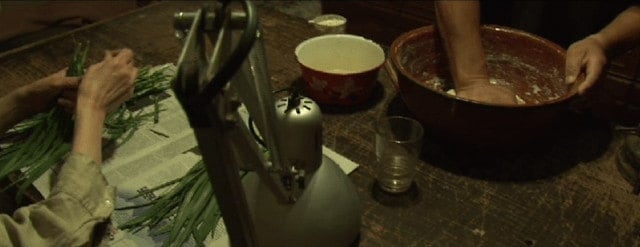Given its international success and recent Oscar triumph of Ryusuke Hamguchi's “Drive My Car”, Japanese cinema seems to be not only highly regarded, but also a powerhouse of creativity and artistry. Even before that, Shinichiro Ueda raised quite a few eyebrows with critics and genrefans with his underground hit “One Cut of the Dead”, which also created quite a lot of pressure on the filmmaker and the follow-up to this blend of comedy and zombie-horror. While “Special Actors” could not quite live up to the hype, it nevertheless manifested the reputation of its director as mixing genre elements and a quirky sense of humor with personal drama and observations on Japanese pop culture. In many ways, his new feature “Popran” continues this approach, given its comedy elements also pave the way for a drama about a man who finds back to his roots, and thus back to his beloved manhood.
Popran is screening Nippon Connection

Ever since he changed from a creator of original manga to a major distributor, Tagami (Yoji Minagawa) has become quite famous in the industry, with many commercially successful titles providing a steady flow of income and highlighting the status of his company as one of the most important on the market. Thus, he has also acquired quite a lot of fame among his colleagues and female co-workers, so that after celebrating the latest work of a once great author, he finds himself in the arms of yet another woman he barely knows. However, the next morning has a rude awakening for the young man, because during his morning routine he shockingly notes that his penis has gone missing, leaving only a tiny hole where it should have been.
As he desperately tries to hide the fact from his staff and friends, he also becomes more and more desperate, especially after his doctor is also unable to provide him with any cure or answer for what has happened to him. Through sheer coincidence he realizes he is not the only man having this particular problem, when he finds out about a secret organization and their next meeting, where he gets the answers he seeks. His penis (“popran”) is certainly not gone, but has flown away, seemingly to places which have some kind of relevance to their owner's past, and to a dream they had the night before it went missing. Tagami decides to take matters into his own hands and find his popran in six days, before it falls to the ground and dies, with the owner then unable to re-attach it to the body.
While “Popran” is being marketed as the kind of quirky, weird comedy which perhaps fans of “One Cut of the Dead” might expect, Ueda's latest work is again much more of a blend of various stories and influences. Much like its famous predecessor, it is also a feature which unfolds into two narratives, with the first one showing the protagonist in his natural habitat, as well as making some rather sarcastic comments about the creative wasteland within the manga industry, and the second essentially following the logic of a road movie, following Tagami's search for his manhood and recounting the people which meant a lot to his development. Strangely enough, the story itself feels not just like a particular odd idea for a manga, which is something even the main character remarks at some point, but is also reminiscent of works like “Scrooged” or even “Groundhog Day” in their narrative centering around a character in need of being reminded of his roots, and essentially atoning for his past sins with the people he betrayed or disappointed the most.
Although both parts of the story certainly contain their fair share of jokes at the expense of the central character having lost his manhood and learning how to cope with it, there are also instances of drama and satire in “Popran”. As Tagami, actor Yoji Minagawa gives quite an entertaining and solid performance, proving yet again, after his role in Seiji Tanaka's “Melancholic”, his ability to balance extremes, see-sawing between laugh-out-loud moments and family drama, especially when the main character sees his parents again after having avoided them for ten years. Thanks to its ensemble and its humor, Ueda manages to direct a movie which not only has its particular brand of comedy to offer, but also has a lot of character and soul, a concept surely lacking in many mainstream productions nowadays.
In conclusion, “Popran” is an entertaining blend of comedy, satire and drama. Apart from many funny scenes, Shinichiro Ueda directs a film with a lot of heart and passion, emphasized by its great cast and thoughtful writing, especially in the dramatic and satirical scenes, with the comedic sequences containing some wonderfully silly and naughty moments.
















